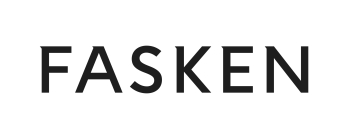Recreational cannabis became legal in Canada on 17 October 2018. It has caused confusion among employers about whether recreational and medical cannabis should be handled differently under human rights law. A guide from the Ontario Human Rights Commission explains how human rights laws apply to both recreational and medical cannabis. The guide was drafted for Ontario employers but the principles apply to employers across Canada.
The recreational use of cannabis is not protected by human rights law unless there is an actual or perceived addiction. Employers can:
- create rules about recreational cannabis usage at work;
- prohibit the possession of any recreational cannabis at work even though the possession of small amounts is now legal;
- prohibit employees from reporting to work under the influence of recreational cannabis even if its use is legal; and
- discipline employees for breaching these or similar rules.
Human rights law continues to apply to cannabis use in the same way it did before the legalisation of recreational cannabis. It can also apply to cannabis use for medical conditions that are considered a disability and to cannabis use that is, or may be perceived to be, an addiction. This is the same way that human rights law applies to any other drug use.
Medical cannabis should be treated the same as any other substances that are used to treat medical conditions. Employers still have the right to request confirmation of a disability-related need to use medical cannabis and information about any functional restrictions stemming from the disability or medical cannabis use. Employers are not required to accommodate the use of medical cannabis if it creates an undue hardship (eg, a serious safety risk).
If there is no undue hardship, the employer may be required to accommodate the use of medical cannabis, including use at work and in different forms. For example, if the medical condition requires cannabis use during working hours and there is no safety risk, the employer may have a duty to accommodate an employee smoking or vaping on their break in compliance with smoke-free legislation. Similarly, if an employee consumes medical cannabis through an edible, this may be permitted under the duty to accommodate if it does not interfere with the employee's safe performance of their job's essential duties.
Human rights law across Canada prohibits discrimination and imposes a duty to accommodate individuals with disabilities. 'Disability' is broadly defined and includes an addiction to drugs. This means an employer is obliged to accommodate, to the point of undue hardship, an employee who is addicted to recreational cannabis. The same procedural and substantive requirements apply to this type of accommodation as to any other disability.
Suspected or perceived addictions raise special issues. A suspected addiction may trigger an employer's duty to ask an employee about a need for accommodation. A perceived addiction can also trigger this same duty. It is also protected from discrimination.
Employers must understand the essential differences between recreational and medical cannabis to effectively manage the impact of cannabis in the workplace.
Recreational cannabis use without an addiction is not protected by human rights law. Employers can discipline employees who breach their rules about recreational cannabis at work. Human rights laws apply only where there is a cannabis addiction or where cannabis is being used for a medical condition which could be considered a disability. In those situations, the employer must be cautious not to violate an employee's right to be free from discrimination based on disability and the duty to accommodate.
For further information on this topic please contact Megan Beal at Fasken by telephone (+1 613 236 3882) or email ([email protected]). The Fasken website can be accessed at www.fasken.com.
This article was first published by the International Law Office, a premium online legal update service for major companies and law firms worldwide. Register for a free subscription.



